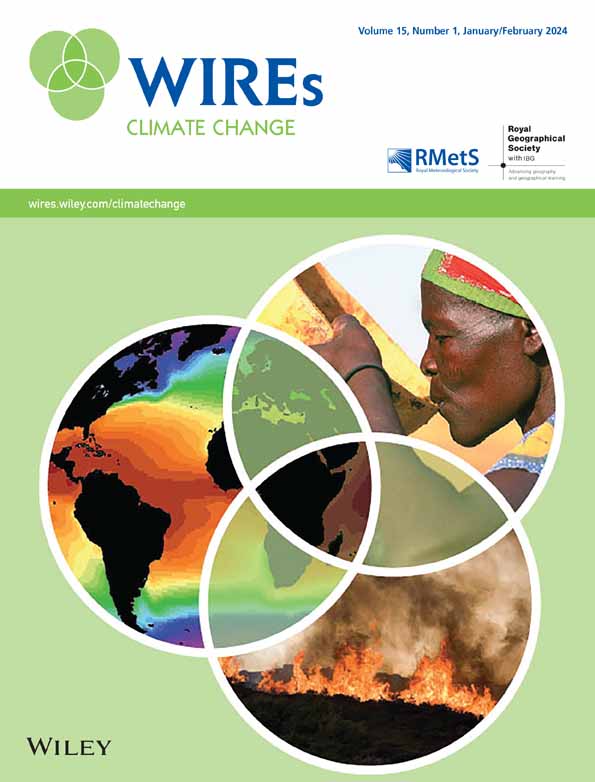Learning and community building in support of collective action: Toward a new climate of communication at the COP
IF 10.3
1区 环境科学与生态学
Q1 ENVIRONMENTAL STUDIES
引用次数: 2
Abstract
The international UN Climate Change conferences known as “Conferences of the Parties (COPs)” have an enormous convening power and are attended annually by tens of thousands of actors working on climate change topics from a wide range of perspectives. In the COP spaces outside of the formal negotiations, the communication culture is dominated by “side events,” a format that relies heavily on conventional presentations and panels that can be informative, but is generally not conducive to mutual engagement, reflection, or dialogue. There is an urgent need for new dialogue formats that can better foster learning and community‐building and thereby harness the enormous latent potential for climate action represented by the diverse stakeholders that gather at the COP. Against this backdrop, and drawing on our experience with the development and implementation of the Co‐Creative Reflection and Dialogue Spaces at COP25, COP26, and COP27, we make recommendations for further developing the communication culture of the COPs. At the level of individual sessions, we provide recommendations for designing participatory dialogues that can better support reflection, interconnection, and action orientation. In addition, we offer guidance for scaling up these practices, for instance through networks and communities of practice to support a shift of the overall communication culture of the COPs. Our recommendations focus on interactions and exchanges that unfold outside of the formal negotiation sessions, with a view toward enabling and accelerating transformative action by non‐state actors.

支持集体行动的学习和社区建设:在缔约方会议上营造新的交流氛围
被称为“缔约方大会”的联合国气候变化国际会议具有巨大的召集力,每年都有数以万计的参与者从广泛的角度参与气候变化议题。在正式谈判之外的缔约方会议空间中,沟通文化以“会外活动”为主,这种形式严重依赖于传统的演讲和小组讨论,这些演讲和小组会议可以提供信息,但通常不利于相互参与、反思或对话。迫切需要新的对话形式,以更好地促进学习和社区建设,从而利用聚集在缔约方会议上的各种利益攸关方所代表的气候行动的巨大潜在潜力。在此背景下,我们借鉴我们在第25届、第26届和第27届联合国气候变化大会上开发和实施共同创意反思和对话空间的经验,为进一步发展联合国气候变暖大会的传播文化提出建议。在个别会议层面,我们为设计参与性对话提供了建议,这些对话可以更好地支持反思、相互联系和行动导向。此外,我们还为扩大这些做法提供指导,例如通过网络和实践社区来支持缔约方大会整体传播文化的转变。我们的建议侧重于在正式谈判会议之外展开的互动和交流,以期促进和加速非国家行为者的变革行动。
本文章由计算机程序翻译,如有差异,请以英文原文为准。
求助全文
约1分钟内获得全文
求助全文
来源期刊

Wiley Interdisciplinary Reviews: Climate Change
METEOROLOGY & ATMOSPHERIC SCIENCES-
CiteScore
20.00
自引率
2.20%
发文量
58
审稿时长
>12 weeks
期刊介绍:
WIREs Climate Change serves as a distinctive platform for delving into current and emerging knowledge across various disciplines contributing to the understanding of climate change. This includes environmental history, humanities, physical and life sciences, social sciences, engineering, and economics. Developed in association with the Royal Meteorological Society and the Royal Geographical Society (with IBG) in the UK, this publication acts as an encyclopedic reference for climate change scholarship and research, offering a forum to explore diverse perspectives on how climate change is comprehended, analyzed, and contested globally.
 求助内容:
求助内容: 应助结果提醒方式:
应助结果提醒方式:


